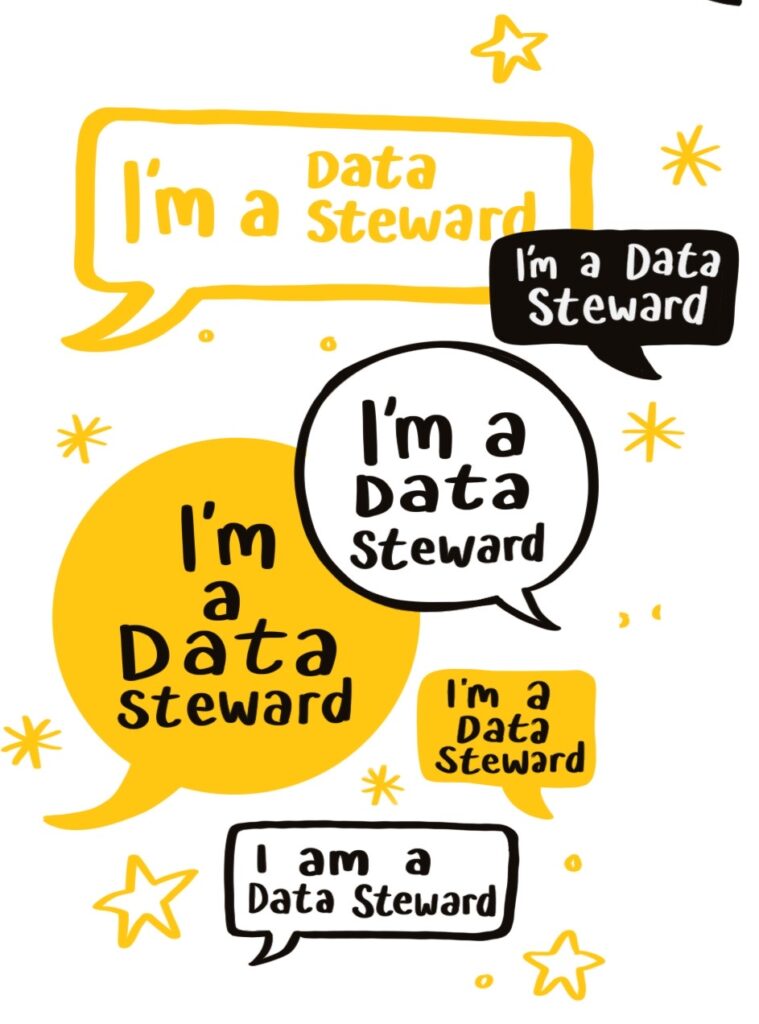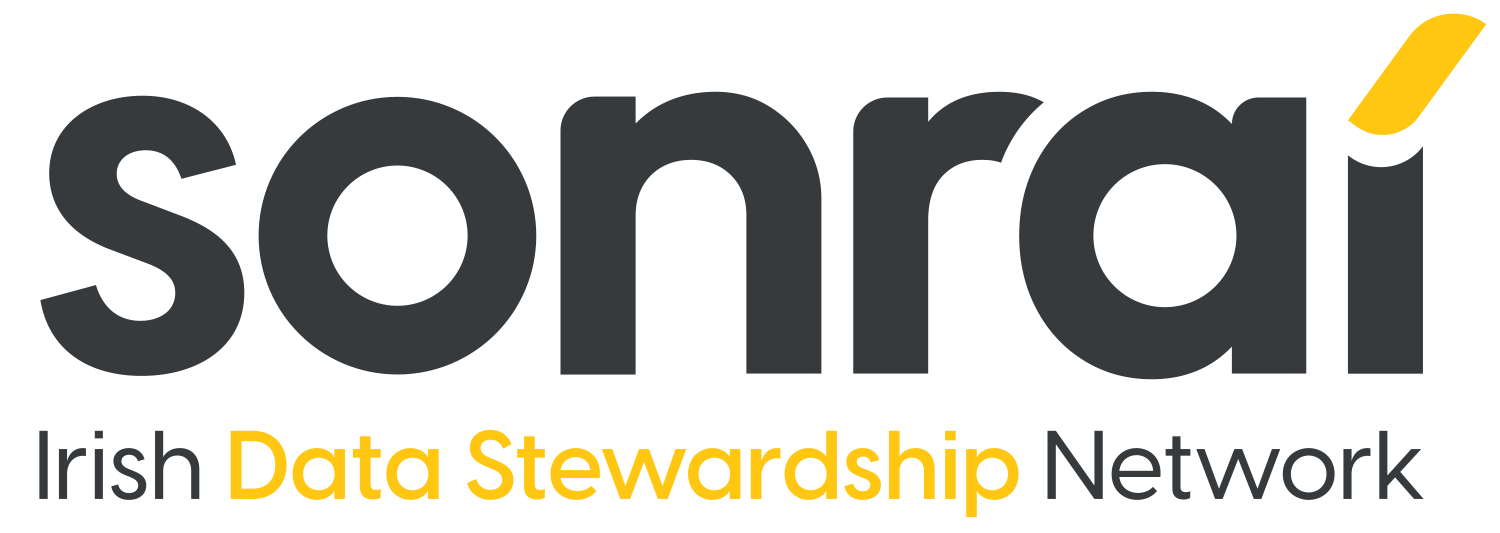Data Stewardship in Ireland: challenges and opportunities
Thank you to all who joined us on the 19th & 20th June 2024 in University College Cork for the first Sonraí Annual Conference. For those who were not able to attend recordings of our speakers can be found below.
Over the two day we heard how researchers and research culture face the challenges of precarity, scarcity of time, key skills and infrastructure while being subject to pressured funding applications and suspect metrics all of which hinders long-term preservation of research outputs, development of institutional knowledge, and undervalues good research and open research practices. This means we risk research data management and data stewardship being seen as admin tasks adding to researchers’ already heavy workloads rather than as core research enabling activities. Key cross-cutting themes include the need for a common language to facilitate collaboration, shared values of respect and accountability, the role of data stewards in improving research reproducibility, all through the lens of recognition, support, professionalisation, and training in data stewardship.

Day 1
Daniel is Director of 4TU.ResearchData, an international data repository for science, engineering and design, based in the Netherlands. He has a background in open research and research data management across a range of national and institutional contexts, including working in Ireland as National Open Research Coordinator, and positions in Germany and Australia supporting open research in European projects and academic libraries.
During his talk titled ‘Enabling FAIR research data: what does it take?’ Daniel discussed key elements of FAIR data support, highlighting work at 4TU.ResearchData as an international data repository, organisational structures for data stewardship at 4TU Federation universities, and recent initiatives to enable and incentivise FAIR research outputs.
Dr Lisa Griffith is Director at the Digital Repository of Ireland (DRI). She previously worked as the DRI membership manager and for five years as programme manager at DRI. Lisa is actively involved in Ireland’s National Open Research Forum (NORF), sitting on their Steering Group, Grants Oversight Committee and chairing the National PID Taskforce. Lisa came to DRI from roles in higher education and cultural heritage having worked at the Research Support Office in DCU and the National Print Museum. Lisa holds a PhD in history from Trinity College Dublin.
Kalpana is a Professor of Information and Communication Studies at University College Dublin. Her research and teaching focus on the research ecosystem itself, open data, and data archives and sharing, as well as other work on research evaluation and peer review.
Given mandates for open science in Irish and European research funding with the need for protecting commercialisation/intellectual property, how does the Irish research ecosystem balance these competing drivers? What kind of policies are needed to support researchers, funders, research offices, and technology transfer offices? Drawing on digital health research and innovation as a case study, she will report on early results from ROCHE, a National Open Research Forum (NORF) Strand II.
As MoreBrain’s lead on strategy and research, Josh draws on his decade-and-a-half experience of leadership in open research infrastructures, programme management, and community of practice development. He moved into open research infrastructures after working as a librarian at the University of Brighton, and joined Jisc in 2010, to shape their investments and innovation programme for improving research information management in the UK.
Persistent Identifiers (PIDs), such as ORCID IDs or DOIs, are a critical component of a modern, digital research system. NORF and their PID Task Force have been working with experts from MoreBrains Cooperative on a project to develop a PID roadmap for Ireland. This is part of the National Action Plan for Open Research and is aligned with national priorities including the Impact 2030 agenda, and the European Open Science Cloud.
Dermot is an Associate Professor of Psychology at Maynooth University, with research interests centred around cognitive science. He is a strong supporter of open access publishing, serving as action editor for the open access journal Collabra, and is the current Chair of the Scientific Advisory Board of PsyArxiv, the largest preprint server for research in psychology.
The TROPIC project (TRaining for OPen research in an Irish Context) aims to develop and pilot a national open research training programme to upskill researchers in the fundamentals of open research practices. Through the development of a training programme that is accessible to different disciplines and researcher career stages, TROPIC promotes the development of core research values and equip researchers with transferable competencies and skills, including how to conduct and use research in a trustworthy, transparent, and ethical manner to the benefit of individuals, science and society; how to manage and use research outputs effectively, and aligned to best practice in open research.
Armin is the Research Data Manager at the University of Limerick. His tasks include teaching and consultancy around open research in general and research data in particular. He is a member of the Research Data Alliance, an EOSC FAIR champion, and the project lead of the NORF funded iFrame project. He particularly enjoys running hands-on Data Carpentry workshops for researchers.
The Irish National Research Data Management Framework Project (iFrame) aims at developing a national research data management framework. Aims include surveying the current state of service provision; helping research performing institutions to align with best practices and to upgrade their services; engaging stakeholders to clarify sector-wide RDM roles and responsibilities and agree on national reference policy guidelines; and evaluating the feasibility of national support services regarding technical service provision and in access to discipline specific expertise.
Day 2
Anita is a Professor of Pharmaceutical Chemistry, Head of School of Chemistry and Director UCC’s Future Pharmaceuticals, having completed two terms as Vice President for Research & Innovation (2011-21) at University College Cork. She is a Co-PI and co-theme lead in SSPC, The Science Foundation Ireland Research Centre for Pharmaceuticals. She is the inaugural Chair of the National Forum on Research Integrity in Ireland established in 2015.
She will share some perspectives on the links between research data management and research integrity, and on the challenges and benefits of structured data management as a PI and research mentor.
David is UCC’s Director of Research Support & Policy and Co-lead of the CoARA National Chapter for Ireland and the NORF-funded project ‘The Roadmap to Embedding Open Research Practices in Ireland (ABOARD)’. Focused on incentivising Open Research practices in Ireland, and led by Dr. David O’Connell and Dr. Sally Smith (TCD), this project brings together a strong national consortium of research-performing organisations, research-funding organisations and key researcher groups to engage in deep, iterative dialogue with key stakeholders across the Irish research landscape. The project, one of thirteen new consortia-based projects designed to advance the implementation of the National Action Plan for Open Research 2022-2030, plans to use a consultation-driven approach to reach agreement on core commitments and concrete steps to effectively incentivise Open Research practices, develop a statement on the use of Responsible Research Metrics, and support the development of Responsible Research Assessment.
Marcus is a Professor of Biological Psychology at the University of Bristol where he is also Associate Pro Vice Chancellor for Research Culture. His research interests include the use of different causal inferences methods to understand the social and behavioural determinants of physical and mental health outcomes. He is Chair of the MRC Neurosciences and Mental Health Board, and of the UK Reproducibility Network Supervisory Board.
The statistician W Edwards Deming, who championed quality control in automobile manufacturing and transformed the reliability of the industry famously said, “A bad system beats a good person every time“. At present, academic research relies heavily on trust in individuals – it is opaque, artisanal, lacks protection against human fallibility, and incentivises getting published over getting the right answer. He will discuss evidence for each of these problems, and systems solutions to addressing them.
Jess is the Lead Data Scientist at NHS Grampian and a Senior Research Fellow at the University of Aberdeen. She runs Grampian’s collaboration with The Health Foundation and four other NHS centres across the UK. This is a six-year project working to reduce health inequalities. The team’s specialty is working with big, messy, high-security health and social care data. Dr Butlers focus is creating useful analysis for policy makers and care providers. Right now, they are working on understanding inequalities in children’s mental healthcare.
Dr Butler also has an interest in open science and good research culture. Scientists should be (but aren’t) rewarded for doing rigorous science. She recently gave evidence about this to the House of Commons Science & Technology committee.
Dr Darren Dahly is the Principal Statistician of the HRB Clinical Research Facility University College Cork, and a Senior Lecturer in Research Methods in the UCC School of Public Health. He consults and collaborates on a wide variety of patient-focused studies in and around Cork, and teaches postgraduates about clinical trial study design and analysis, reproducible research methods, and critical appraisal skills. In this talk he reflect on the origins of the Sonraí Project and the growth of the data stewardship community.
Aoife joined UCC Library in 2018 and since then she has developed the Research Data Service which provides university wide support, advice, and training on all aspects of research data management and FAIR Principles. She is PI for the Sonraí project and in this talk she discusses the future of the project and plans for long term sustainability.
